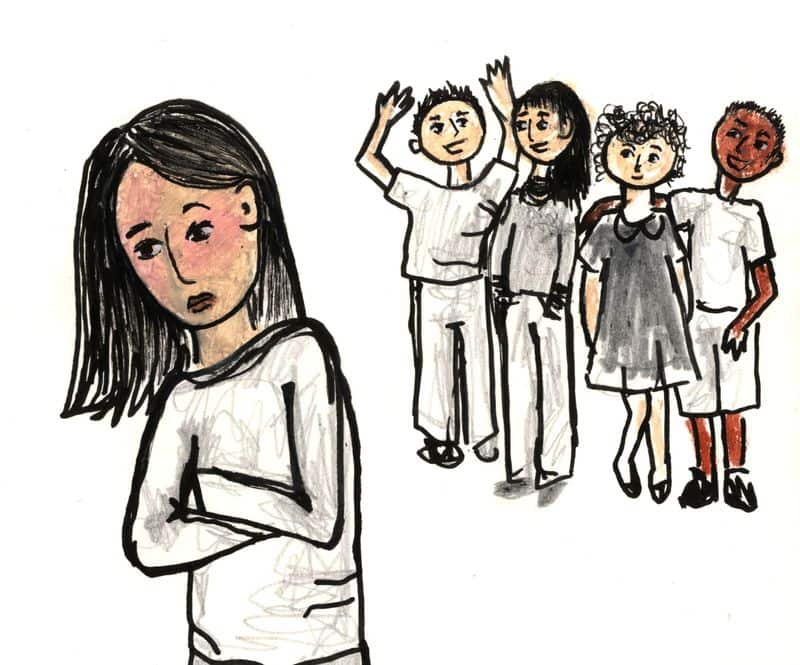Relationships can be the source of immense joy, companionship, and support. However, when a relationship starts to crumble, the signs can be subtle or glaringly obvious. Often, individuals find themselves clinging to a partnership, hoping to rekindle the initial spark. Recognizing the red flags can save both parties from prolonged heartache and disappointment.
This guide highlights the top ten indicators that you might be forcing a relationship that’s unraveling. From constant disagreements to feeling emotionally detached, these pointers can help you evaluate your relationship honestly. Remember, identifying these signs is the first step towards making positive changes.
1. Consistent Arguing

Frequent arguments can signal underlying issues. If every discussion turns into a disagreement, it may indicate a deeper problem. At times, differences of opinion are normal, yet constant bickering can drain emotional energy.
In a healthy relationship, partners should communicate openly and resolve differences. When arguments become the norm rather than the exception, it’s essential to reassess the dynamics at play. Is there unresolved resentment? Or perhaps a lack of understanding?
Taking a step back to evaluate the patterns and seeking to address core issues can be a step toward healing.
2. Lack of Emotional Connection

Without emotional connection, relationships can feel hollow. If you find yourself or your partner emotionally distant, this could signify trouble. Emotional intimacy is the glue that bonds partners together.
When everyday interactions feel mechanical or obligatory, it’s a red flag. Are you both sharing your thoughts and feelings? Or is there a growing emotional void?
Rebuilding emotional bridges requires effort from both sides. Taking time to listen and genuinely engage with each other can reignite the connection. However, both partners must be willing participants in this process.
3. Avoidance of Difficult Conversations

Ignoring tough topics is a sign of trouble. If discussing future plans, finances, or personal issues feels daunting, your relationship might be on shaky ground. Avoidance doesn’t solve problems.
It merely postpones the inevitable, allowing issues to fester. Healthy relationships thrive on open communication and trust. Is there a fear of confrontation or rejection?
Building a safe environment where both partners feel comfortable discussing sensitive matters is crucial. Developing this skill can prevent misunderstandings and foster a deeper bond. But, it requires patience and understanding from both parties.
4. Feeling Obligated Rather Than Committed

Commitment should feel like a choice, not an obligation. When you feel like you’re staying out of duty or habit, it’s a significant red flag. True commitment arises from love and mutual respect.
If you find yourself going through the motions without genuine desire, it’s time to reflect. Have you communicated your feelings with your partner?
This situation demands honest introspection and conversation. Being transparent about your feelings can lead to productive dialogue. Both partners should feel equally invested without feeling pressured by expectations or routine.
5. Inability to Forgive

Holding onto grudges is detrimental. When past mistakes overshadow present interactions, it can hinder growth. Forgiveness is vital for moving forward and rebuilding trust.
If resentment lingers, it creates an emotional barrier. Are past issues frequently resurfacing in conversations? This pattern can stall progress and deepen divides.
True forgiveness requires empathy and understanding. Both partners should strive to let go of past grievances and focus on nurturing a positive future. Seeking professional guidance can also assist in navigating these challenging emotions.
6. Lack of Shared Goals

Shared goals act as anchors in relationships. When partners drift apart in their visions for the future, it becomes challenging to stay aligned. Are your life goals and values still in sync?
Diverging paths can create tension. Discussing aspirations and finding common ground is essential. Are both partners willing to compromise and support each other’s dreams?
Reevaluating priorities together can bring clarity. It’s crucial to identify areas where adjustments can be made, ensuring that both individuals feel fulfilled and supported in their pursuits. A shared vision strengthens the bond.
7. Physical Distance

Physical distance can mirror emotional detachment. If intimacy wanes or physical touch becomes scarce, it can be indicative of underlying issues. Physical connection fosters closeness.
Is there a reluctance to engage in affectionate gestures? Or does one partner consistently avoid physical proximity? These signs can highlight discomfort or unresolved tension.
Addressing physical distance requires open dialogue. Both partners should communicate their needs and feelings regarding intimacy. Understanding and respecting boundaries can help in rekindling the physical bond that supports emotional connection.
8. Isolation from Friends and Family

Isolation can be subtle yet telling. If you find yourself withdrawing from loved ones, it may indicate relationship issues. Support networks provide perspective and comfort.
Are you avoiding social interactions to prevent discussions about the state of your relationship? This behavior can signal discomfort or embarrassment.
Reconnecting with friends and family can offer fresh insights. They can provide support and honest feedback, which might be crucial in assessing your relationship’s health. Balancing your relationship and personal connections is key to maintaining overall well-being.
9. Constantly Seeking Reassurance

Persistent need for reassurance can highlight insecurity. If you or your partner constantly seek validation, it could indicate a lack of trust or confidence in the relationship.
Are there frequent requests for affirmation of love or commitment? These behaviors can stem from uncertainty or fear of abandonment.
Building self-confidence and trust is essential. Engage in activities that foster self-esteem individually and as a couple. Open conversations about insecurities can also strengthen trust and understanding, ensuring both partners feel valued and secure.
10. Lingering Doubts about the Future

Doubts about the future can be daunting. If you’re frequently questioning the longevity of your relationship, it’s time for introspection. Uncertainty can erode the foundation of any partnership.
Are you envisioning a future together, or do doubts cloud your vision? These feelings might suggest a misalignment in your relationship.
Honest discussions about future aspirations can provide clarity. Both partners should openly share their dreams and concerns, ensuring alignment or addressing discrepancies. Embracing transparency can pave the way for informed decisions about the relationship’s trajectory.

Well, hello there!
My name is Jennifer. Besides being an orthodontist, I am a mother to 3 playful boys. In this motherhood journey, I can say I will never know everything. That’s why I always strive to read a lot, and that’s why I started writing about all the smithereens I came across so that you can have everything in one place! Enjoy and stay positive; you’ve got this!

